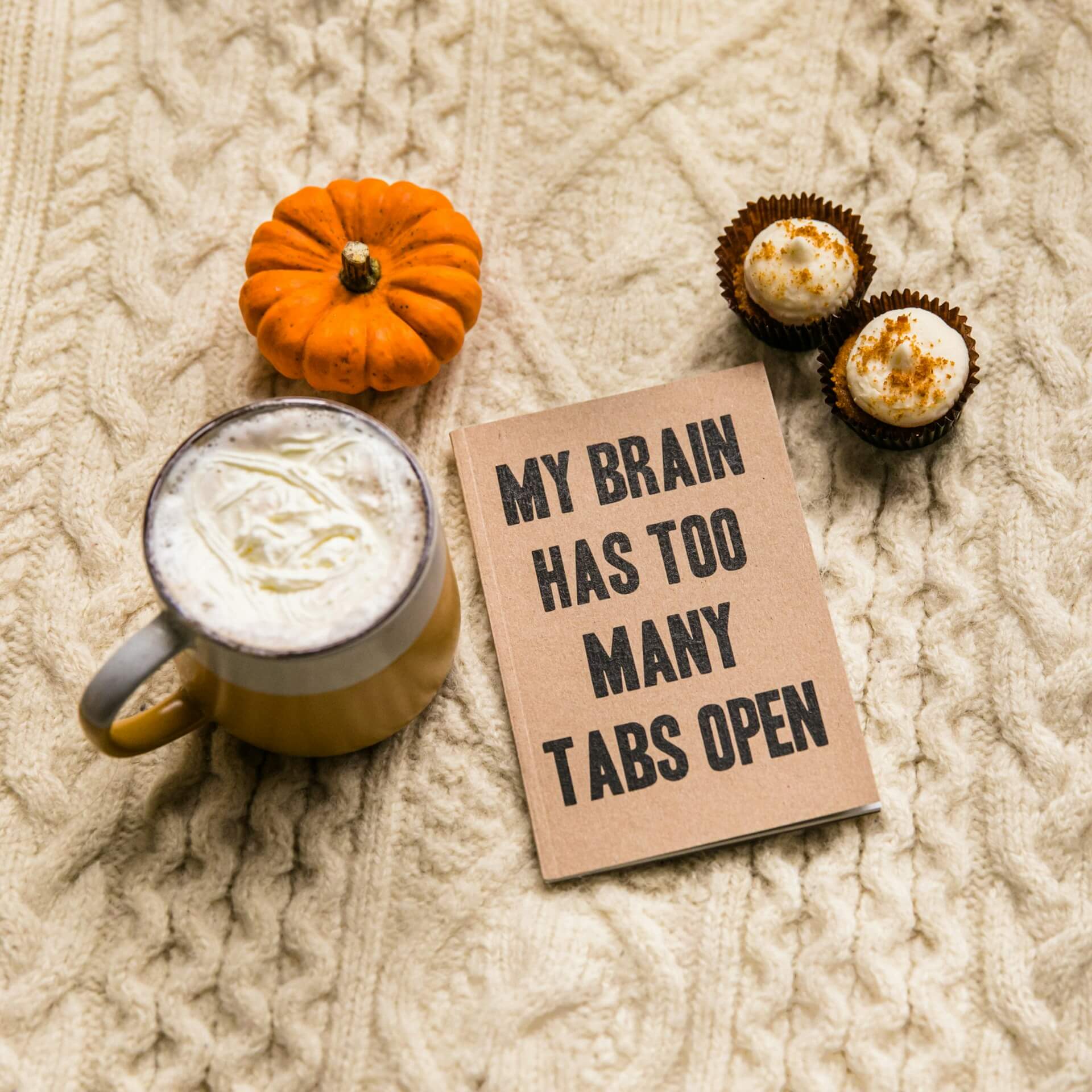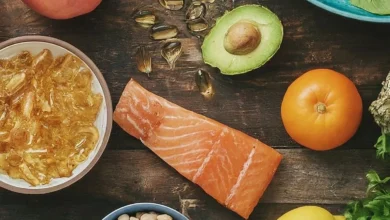Brain Foods: Nutritional Choices for Staying Sharp

Have you ever wondered if what you eat could make you smarter? Imagine boosting your brain power with every bite! Recent research shows that your diet plays a crucial role in keeping your mind sharp and focused. In this article, we’ll explore the fascinating world of brain foods and how they can enhance your cognitive function.
Introduction
Your brain is like a high-performance engine, and just like any powerful machine, it needs the right fuel to run at its best. The food you eat directly impacts your brain’s ability to function, affecting everything from your memory to your mood. By making smart nutritional choices, you can give your brain the boost it needs to stay sharp and focused.
In this guide, we’ll dive into the world of brain-boosting foods and explore how you can eat your way to better mental performance. Get ready to discover delicious ways to nourish your noggin!
Understanding Brain Health and Nutrition
What is Brain Health?
Brain health refers to how well your brain performs across several areas:
- Memory
- Concentration
- Speed of processing information
- Emotional balance
A healthy brain helps you learn, work, and enjoy life to the fullest. It’s not just about avoiding diseases like Alzheimer’s; it’s about feeling mentally sharp and emotionally balanced every day.
How Nutrition Affects Brain Function
Your brain is always “on.” It works 24/7, even when you’re asleep. This means it needs a constant supply of fuel. That fuel comes from the foods you eat, and what’s in that fuel makes all the difference.
Think of your diet as premium gasoline for your brain. High-quality foods contain lots of vitamins, minerals, and antioxidants. These nutrients:
- Protect your brain from damage
- Promote the growth of new brain cells
- Improve communication between brain cells
On the flip side, a diet high in processed foods and added sugars can harm your brain over time. It’s like putting low-grade fuel in a sports car – it just won’t perform as well.
Key Nutrients for Brain Health
Several nutrients are especially important for keeping your brain in top shape:
- Omega-3 fatty acids: These healthy fats are crucial for brain cell structure and communication.
- Antioxidants: They protect your brain cells from damage caused by harmful molecules called free radicals.
- B vitamins: These help produce neurotransmitters, the chemicals that carry messages between brain cells.
- Vitamin E: This powerful antioxidant helps protect brain cells from oxidative stress.
- Flavonoids: These plant compounds improve blood flow to the brain and enhance cognitive function.
In the next sections, we’ll explore specific foods rich in these brain-boosting nutrients and how you can easily incorporate them into your diet.
Remember, feeding your brain isn’t just about individual nutrients. It’s about creating an overall eating pattern that supports cognitive health. By making informed choices about what you eat, you’re investing in your brain’s long-term well-being.
Top Brain-Boosting Foods
Now that we understand how nutrition affects our brain, let’s dive into some delicious brain foods that can help keep your mind sharp. These foods are not only tasty but also packed with nutrients that support cognitive function.
1. Fatty Fish: Omega-3 Powerhouses
Fatty fish are the superstars of brain food. They’re rich in omega-3 fatty acids, which are crucial for brain health. Some excellent choices include:
- Salmon
- Mackerel
- Sardines
- Trout
Why they’re great: Omega-3s help build brain and nerve cells. They’re essential for learning and memory and may even slow age-related mental decline.
How to enjoy: Aim for at least two servings of fatty fish per week. Try grilled salmon for dinner, or add canned sardines to your salad for a brain-boosting lunch.
2. Berries: Antioxidant-Rich Gems
Berries aren’t just delicious; they’re also packed with antioxidants that benefit your brain. Some top choices include:
- Blueberries
- Strawberries
- Blackberries
- Raspberries
Why they’re great: Berries contain flavonoids, which improve memory and may help delay age-related cognitive decline.
How to enjoy: Add a handful of berries to your morning cereal, blend them into smoothies, or enjoy them as a sweet, brain-healthy snack.
3. Nuts and Seeds: Nutrient-Dense Powerhouses
Nuts and seeds are small but mighty when it comes to brain health. Some excellent options include:
- Walnuts
- Almonds
- Pumpkin seeds
- Sunflower seeds
Why they’re great: They’re rich in vitamin E, which protects brain cells from oxidative stress. They also contain healthy fats and protein that support overall brain function.
How to enjoy: Snack on a small handful of mixed nuts, sprinkle seeds on your salad, or add them to your morning oatmeal.
4. Leafy Green Vegetables: Nutrient-Packed Brain Boosters
Leafy greens are nutritional powerhouses that offer significant benefits for your brain. Some top choices include:
- Spinach
- Kale
- Collard greens
- Broccoli
Why they’re great: These veggies are packed with vitamins, minerals, and antioxidants that protect brain cells and may slow cognitive decline.
How to enjoy: Add spinach to your smoothies, make a kale salad, or sauté collard greens as a side dish.
5. Dark Chocolate: A Sweet Treat for Your Brain
Yes, you read that right! Dark chocolate can be good for your brain when consumed in moderation.
Why it’s great: Dark chocolate contains caffeine and antioxidants called flavonoids, which may enhance focus and improve blood flow to the brain.
How to enjoy: Choose dark chocolate with at least 70% cocoa content. Enjoy a small square as an occasional treat or add cocoa powder to your smoothies.
Hydration and Brain Function
While we often focus on food, don’t forget about the importance of staying hydrated for optimal brain function.
Why Water Matters for Your Brain
Your brain is about 75% water, so even slight dehydration can have a significant impact on its performance. Proper hydration:
- Improves concentration and focus
- Balances mood and emotions
- Helps maintain memory function
- Reduces stress
How Dehydration Affects Your Brain
When you’re dehydrated, your brain has to work harder to perform the same tasks. This can lead to:
- Difficulty focusing
- Fatigue
- Headaches
- Mood changes
Tips for Staying Hydrated
- Drink water regularly throughout the day, not just when you feel thirsty.
- Eat water-rich foods like cucumbers, watermelon, and zucchini.
- Limit caffeine and alcohol, which can be dehydrating.
- Keep a water bottle with you as a reminder to drink.
- Use a hydration app to track your water intake.
Remember, the foods you eat and the fluids you drink play a crucial role in maintaining your brain health. By incorporating these brain-boosting foods into your diet and staying well-hydrated, you’re giving your brain the fuel it needs to function at its best.
The Role of Antioxidants in Brain Health
Antioxidants are your brain’s bodyguards, protecting it from harmful molecules called free radicals. These powerful compounds:
- Reduce inflammation in the brain
- Slow down brain aging
- Improve learning and memory
Some antioxidant-rich foods include:
- Artichokes
- Pecans
- Blueberries
- Dark chocolate
- Red cabbage
- Beets
Try to include a variety of these foods in your diet to give your brain a protective boost.
Brain-Healthy Eating Patterns
Mediterranean Diet
The Mediterranean diet isn’t just good for your heart; it’s great for your brain too!
Key components:
| Food Group | Examples |
|---|---|
| Fruits and Vegetables | Leafy greens, tomatoes, berries |
| Whole Grains | Brown rice, whole wheat bread |
| Lean Proteins | Fish, poultry, legumes |
| Healthy Fats | Olive oil, avocados, nuts |
Benefits: This diet may reduce the risk of cognitive decline and Alzheimer’s disease.
MIND Diet
The MIND diet combines the best of the Mediterranean and DASH diets, focusing specifically on brain health.
Key foods to eat:
- Green leafy vegetables
- Other vegetables
- Nuts
- Berries
- Beans
- Whole grains
- Fish
- Poultry
- Olive oil
- Wine (in moderation)
Potential benefits: May slow cognitive decline and reduce Alzheimer’s risk.
Foods to Limit for Better Brain Health
While adding brain-boosting foods is important, it’s equally crucial to limit foods that may harm brain function:
- Refined sugars
- Processed foods
- Excessive alcohol
- Trans fats
Instead, opt for:
- Whole fruits instead of sugary snacks
- Home-cooked meals using whole ingredients
- Herbal tea or sparkling water with fruit
- Healthy fats like avocado or olive oil
Meal Planning for Brain Health
Incorporating brain-healthy foods doesn’t have to be complicated. Here’s a sample day of brain-boosting meals:
| Meal | Menu |
|---|---|
| Breakfast | Oatmeal with blueberries and walnuts |
| Lunch | Spinach salad with grilled salmon and avocado |
| Dinner | Stir-fry with mixed vegetables, brown rice, and tofu |
| Snacks | Apple slices with almond butter, or a small piece of dark chocolate |
Supplements for Brain Health
While a balanced diet should be your primary source of nutrients, some supplements may support brain health:
- Omega-3 fatty acids
- B-complex vitamins
- Vitamin D
- Ginkgo biloba
Important: Always consult with a healthcare professional before starting any supplement regimen.
Lifestyle Factors That Complement Brain-Healthy Eating
Remember, diet is just one piece of the puzzle. For optimal brain health, also focus on:
- Regular exercise: Aim for at least 150 minutes of moderate-intensity exercise per week.
- Quality sleep: Strive for 7-9 hours of sleep each night.
- Stress management: Try techniques like meditation, deep breathing, or yoga.
- Mental stimulation: Engage in activities like puzzles, learning a new language, or playing an instrument.
Conclusion
Nourishing your brain is a powerful way to enhance your cognitive function and protect your mental health for years to come. By incorporating these brain-boosting foods into your diet and adopting a brain-healthy lifestyle, you’re investing in your most valuable asset – your mind.
Remember, small changes can make a big difference. Start by adding one or two brain-friendly foods to your meals each day. Your brain will thank you with improved focus, better memory, and enhanced overall well-being.
Take action today: Plan a brain-healthy meal for tomorrow, incorporating at least one of the foods we’ve discussed. Your journey to a sharper, more vibrant mind starts with your very next bite!



